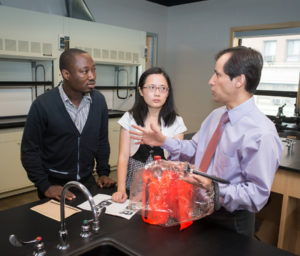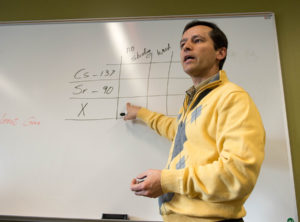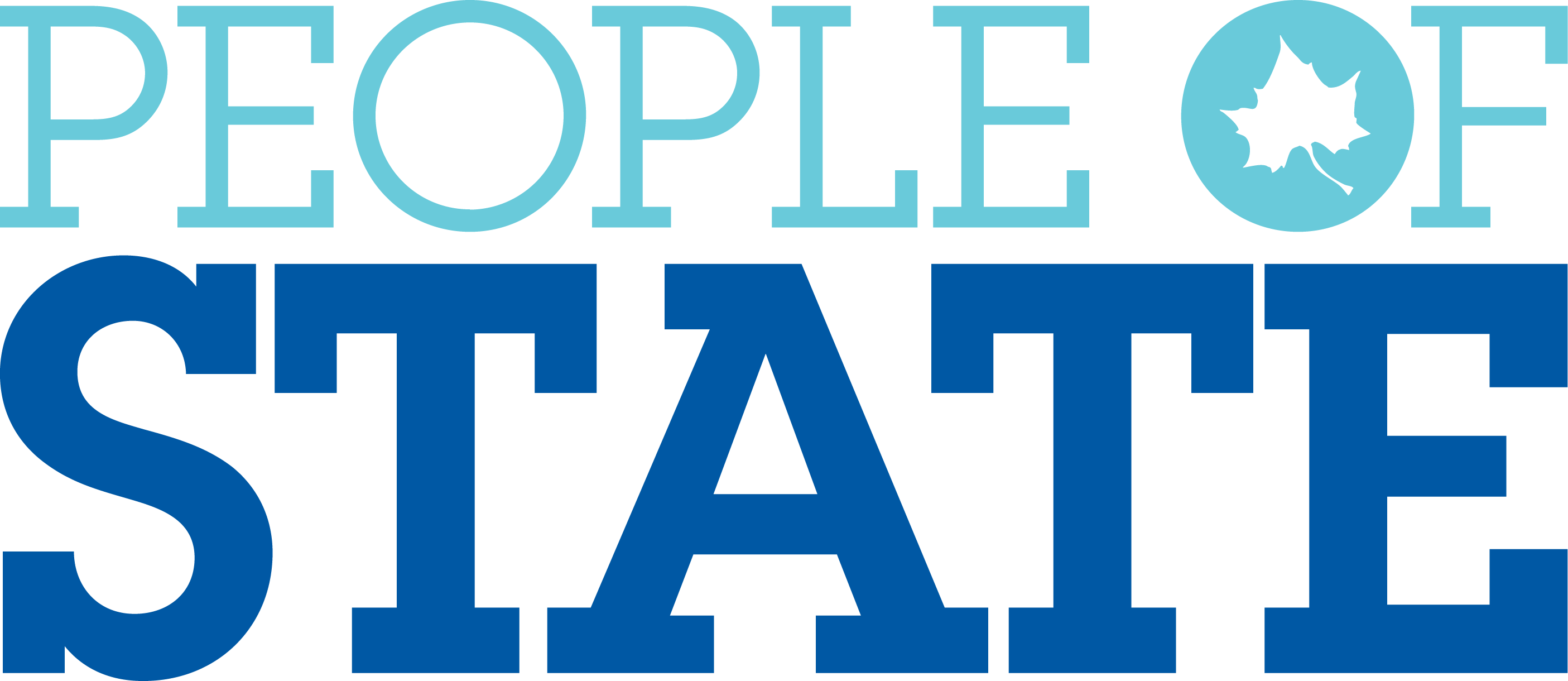
FARMAN A. MOAYED
By Kasy Long
Sep 15, 2022
“Someone’s hurt!”
Managers never want to hear those dreaded words. No one wants to witness an employee getting injured on the job. Safety is a primary concern for engineering firms and businesses.
Safety, safety, safety.
Luckily, there is a designed group of engineers trained to assist these companies with safety measures and regulations, and to integrate safety management.
Just ask Dr. Farman A. Moayed, professor and chairperson of the Department of Built Environment at Indiana State University. Concentrating on industrial engineering and occupational safety management, Moayed prepares students for any incident they could face in their future careers.
Industrial engineering is a broad field, Moayed said. As he worked in his home country of Iran, Moayed was involved in production and maintenance operations for various companies. During this time, he witnessed several occupational accidents. Some were minor injuries while others were severe or even fatal. Due to these unfortunate circumstances, Moayed learned safety was crucial to the sustainability of all industries.
Safety is the key to success, he said.
“I knew as an engineer that things weren’t right [for those companies], but I couldn’t put my finger on any specific things to improve the situations and safety conditions—mostly because I wasn’t trained as a safety engineer,” explained Moayed, who also serves as Interim Associate Dean of the College of Technology.
Following those incidents, Moayed left Iran and moved to the United States for graduate studies. He planned to remain in production and maintenance work, but he couldn’t ignore his growing passion for industrial and safety engineering.
As a curious learner, he was excited to learn new concepts, and this excitement continues today with his safety management teaching at Indiana State. The University’s safety management program was one of the first bachelor’s degree programs of its kind in the country.
“It’s a student-oriented program that highlights hands-on, experiential learning for our students,” said Moayed.

Throughout his coursework and individual research, Moayed is learning about human factors and ergonomics—the study of interactions among humans and other elements of a system. He is currently working on a research project with Ph.D. students at Indiana State.
Together, Moayed and his students learn about improving the sustainability of human resources. Students gather data and then determine how to arrive at positive results for companies.
“Doing it [the project] alone is very difficult. Students are doing high-quality work we can use for publications and presentations,” said Moayed.
In his research, Moayed considers other areas of the field, including industrial hygiene, fire protection, system safety, and developing safety programs. Throughout his work, he concentrates on the technical aspects of industrial and safety engineering, including a recent study on artificial intelligence in safety management.
As he works, Moayed is considering how he can incorporate this learning into the classroom. The professor presents technical engineering to his students in various courses, including fire protection, human factors and ergonomics, safety analysis, industrial hygiene, and statistics in safety management. Moayed challenges his students to be quantitative in their approach to the subject material.
Moayed’s students review the measurements and determine safety conditions related to exposure to toxic materials, risk of fires and other hazards. Moayed uses his real-world experience of working in companies to provide examples to his students—encouraging them to search for data, find the correct numbers, and support their measurements with strong arguments.
“Based on my personal experience, if our students can put numbers next to whatever they are trying to explain to clients and managers, this gives them a stronger argument, compared to someone who talks without providing any evidence or analysis,” said Moayed.

As Moayed attests, the best way for students to learn is by real-world application. Throughout their coursework, safety management students develop a program for companies to implement successful, practical safety rules and regulations. Professors also provide case studies and students review the information to arrive at their own analyses.
With the completion of internships, students have the opportunity to broaden their perspectives. In many instances, employers are impressed with students’ work, and this leads to job placement with the companies upon graduation.
“Internships are what students enjoy doing. Sometimes, this is the reason why they come to Indiana State and to our program, because they want to have experiential learning opportunities,” Moayed said.
Indiana State’s Department of Built Environment excels as a student-oriented environment. Professors prepare students for their future careers with hands-on research, laboratory work, and other learning practices. Faculty invite industry experts and Indiana State alumni to visit campus for students to learn about their careers and the opportunities waiting for them upon graduation.
“The faculty and advisors are here to help. Don’t wait until it’s too late to ask for help,” Moayed expressed. “Whether it’s the coursework, an internship, or a job after graduation, our students need to work hard to achieve the level of success they earn. And our students do work hard. They’re eager learners.”
With every project, Moayed encourages students to think outside the box – and through any problem – until they arrive at their own conclusions. Because of this approach, Sycamores are prepared for wherever their futures take them. Because career readiness begins with BLUE!


